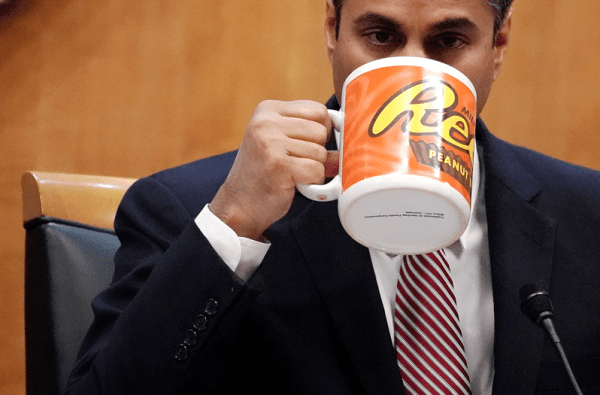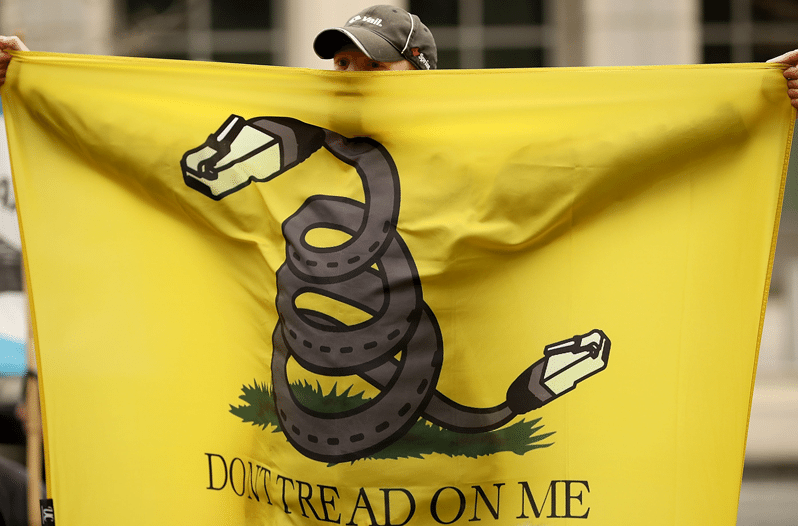Regardless of why you clicked on this story, know that something very significant happened in our government today, and it affects YOU in a very significant way.
Videos by Wide Open Country
Actually, it affects literally every single person who uses the internet in this country.
"The end of the internet as we know it." Maybe you've seen those words in headlines today, read them on Twitter or heard them in casual conversation around your office or at the bar down the street.
They're true. The way you've used the internet since its inception, which you've more than likely taken for granted, has just been slashed. You won't see the change overnight, but it will come soon.
What happened? The Federal Communications Commission, the regulatory body that's supposed to protect your interests as a consumer, just voted 3-2 to repeal regulations that have prevented internet service providers (ISPs) like Comcast and Verizon from being able to moderate what you can see and do on the net. They did that despite overwhelming opposition from the public, the minds behind the internet, hundreds of members of Congress, senators, and even FCC commissioners who voted today.

FCC Commissioner Ajit Pai. Alex Wong/Getty Images
Here's a quick primer on net neutrality: When you pay your monthly internet or phone bill, you can log on to the net and browse freely. All you pay is a fee to connect and maybe fees for different services you use, but once you're online, you're there and free to browse. Today's net neutrality repeal allows ISPs to throttle what kind of information and content you can see and use without regulation of their practices
Does that make you upset? You should be.
You're about to see the roll-out of a tiered-access system, sort of like how you pay for cable. To use different services and apps, you'll have to pay more money. This is already happening in Portugal where there is no net neutrality.
ISPs can now charge you more for using stuff like email, Facebook, Instagram, Twitter, streaming, gaming -- anything.
This also opens the door to censoring content, similar to what China and Russia do with their internet. Maybe there's an article you want to read that speaks out against the net neutrality repeal. They could throttle that so it loads super slow or you don't see it altogether.
If there's a musician leading a charge against a policy reform, they can make it so you don't get to hear their music or social media content.
Maybe you start posting about how bogus this all is. Uh-oh... why are my pages not loading?
The ramifications are tremendous and far-reaching, and if you aren't already getting a sense of that, you need to learn more about what's happening. FCC Chairman Ajit Pai, who cast the deciding vote today, has touted this repeal as the Restoring Internet Freedom Act. He, along with the major ISPs, say they wouldn't dare throttle your content, but that is a huge, heaping pile of bullshit. They've already pulled this trick with different services in the past.
The net neutrality repeal will also have a powerful ripple effect on the music industry as a whole. Here's how it will affect country music and you as a fan and music consumer.
Streaming services will more than likely cost a lot more to use. That's a really bad thing for everyone.
Unless you've been living in a cave since the late 90s, you know that the music industry has been in complete upheaval since the invention of the internet. Record sales now produce only a marginal income for artists, and record stores are becoming nearly obsolete.
Music is now digital, and its pipeline is the internet. Today, it is distributed and discovered online through streaming platforms, digital downloads, social media and content verticals like Wide Open Country. All of those things are going to cost more to use, and access to them will now be more regulated by corporations.
The net neutrality repeal allows ISPs to charge you more to use streaming services in addition to your basic internet connection on top of the monthly fees you pay to use the services.
ISPs also now have an incentive to make you pay a premium for faster access to these services. They can throttle the access speeds, which will funnel people into paying more to use these products, thereby reducing competitors. Maybe your internet service provider bought a streaming service that you don't use. They're going to make it a lot harder for you to use their rival product that you like, all in an effort to curb your consumer behavior towards their own products.
That's going to make it a lot harder for you to listen to music and for artists to get exposure. If there's less incentive for people to access a streaming service, artists are going to be in an even tighter spot than they're already in now. They could even regulate the types of content you'd hear on these services because there would be no regulation.
Streaming services do offer value to artists today partly because they are robust discovery platforms for fans. How many new artists or songs have you found using services like Spotify and Pandora? If you said none, you're not getting the most out of them.
Artists are already making fractions of pennies on the dollar when their songs are streamed on services like Spotify and Apple Music. Imagine making it more difficult than it already is.
The internet will no longer be a level playing field.
It gets worse, especially if you're a musician. Every artist, from the cats playing the honky-tonks and bars to the stadium acts, rely on the internet to cultivate their fanbases through social media, streaming services, digital downloads and more.
Rising costs to access the internet, restrictions on which streaming services you can use at reasonable bandwidth, and premiums to use basic services like social media and email will crater the independent music scene to the point where we'll have to rethink how to do it all over again.
As I mentioned earlier, even established artists will feel the pinch because the fans will have to pay more to interact with them, and they will be limited to who and what they see.
ISPs will be able to throttle what kind of websites you can access under their plan
ISPs now have no regulation to determine what kind of websites you can look at. Maybe you read Wide Open Country to learn about country music and discover new musicians. Under this repeal, ISPs can theoretically regulate which websites you look at for whatever reason. Sound fair?
You think mainstream is saturated with the same artists now? It'll only get worse.
Have you ever wondered why you constantly see certain mainstream stars all over the place while there's a huge crop of talented artists that never make it to the forefront?
A large part of that is because those big mega profitable artists are represented by corporations with vast pockets that pump gobs of money into getting their faces and content out into the online and physical worlds.
The major record labels are divisions of larger corporations, and you now live in an even more corporatized world where they make backroom deals with one another and politicians to determine what we buy and how we live our everyday lives. With the deregulation of net neutrality, you will likely see more of the same roster of faces represented by major labels because they will work with the ISPs.
When ISPs control how you can access things like streaming services, which now determine sales chart rankings, they can juke the system to keep the most profitable artists on top and the most visible.
Having to pay more to use the internet and its services will have a trickle-down effect on the business
Whether you're an artist taking the DIY approach to your career or an established artist with a camp around you, you need the internet to conduct business. You need the internet to book your shows, email blast fans, sell merchandise, sell tickets and keep an engaged audience.
A throttled internet means the cost of doing business in music is going to increase. As is, the words "music business" for most artists is an oxymoron. If an artist can't afford to pay their teams or let alone pay to do it themselves, you're going to be seeing a lot fewer musicians on the road and on the internet. It will directly affect ticket and merchandise sales, which right now are musicians' lifeblood.
So what happens next? The FCC's net neutrality repeal will likely go to court where the battle for a free internet will continue. If the battle ends there, then... welcome to your new corporate America, run by a gang of corporate overlords who don't give a damn about you.
Is this the America you wanted? If not, it's time to change it.




